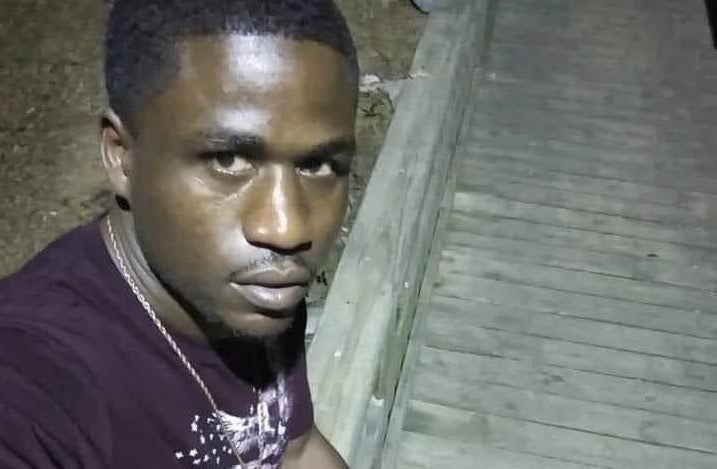George Floyd anniversary: Kendrell Watkins was killed by Taser on bodycam but mystery about his death still remains
Section of police video has been edited out, leaving his family with questions, writes Josh Marcus


Police have killed at least 229 Black people out of a total 426 people of colour since former Minneapolis police officer Derek Chauvin murdered George Floyd on 25 May, 2020. Each case is different, but many share core similarities: quick encounters, for low-level infractions, met with deadly force, leaving families and communities with unanswered questions.
A popular chant, heard during thousands of protests across the country after the murder of George Floyd, was a simple one: “Say his name.” It was a simple act of memory after so many other victims of police brutality had been forgotten, or never acknowledged.
The police officer who fired a Taser stun gun at Kendrell Watkins, a naked, unarmed Black man, during a fatal arrest last summer didn’t know his name.
On 15 August, Mr Watkins’s family called the Tuscaloosa, Alabama, police to report that he’d been acting erratically: making violent threats, throwing food, smashing a glass table at his aunt’s house. A cousin told officers who responded that he was “losing it” and may be on drugs.
Later that night, according to body camera footage, a police officer caught up with him in an empty parking lot.
“You’re not Keyshaun Watkins? You sure?” the officer says.
Kendrell Watkins says no.
“You ain’t in trouble, or he ain’t in trouble either,” the officer continues, before asking for ID, which Mr Watkins says he doesn’t have. The officer lets him go.
Another officer soon arrives. After a redacted portion of conversation, the pair begins to walk after him.

“Hey Keyshaun, hold up real quick!” the officer with the body camera calls out, before asking his partner if the man they’re now pursuing had any criminal charges against him. “If he had charges I was going to chase him down.”
A conspicuous break in the body camera footage, then the scene changes completely.
Officers are sprinting after Mr Watkins, who is completely nude. They order him onto the ground. He lifts his hands for a moment but keeps moving, then an officer Tases him at close range, firing again as the other officer climbs on top of the man, wrestling him into handcuffs.
Eventually, he goes unconscious, and officers stand around his limp body, with one joking that he “rode the lightning,” while the officer with the body camera gets his name wrong a third time, calling him “DeAndre Watkins” as paramedics arrive. Kendrell Watkins was pronounced dead later that day.
Police released video of what happened not long after the arrest itself, but since then, that’s basically all that’s been told to the public or his family. According to public information, the involved officers haven’t been identified or disciplined, and no charges have been filed.
At a press conference following his death, Tuscaloosa police chief Brent Blankley said he was “extremely proud of the conduct, the human decency, compassion and professionalism of those officers.”
His family, meanwhile, says they were shut out completely.
"The only thing I’ve heard from them is what they put on the news that Saturday of his death,” Mable Parham, Mr Watkins’s mother, said in October. “Ain’t nobody knocked on my door, sent a letter or email, no nothing. All I’ve been getting is lies, from the day of his death. I don’t know what to believe now because they’re all lying. I don’t know what to do."
His family wasn’t apprised of the results of his autopsy until November. They did not respond to a request for comment from The Independent.
Community members have protested the arrest, arguing police shouldn’t have used force on someone in mental distress, and that despite an abundance of body camera footage, authorities still haven’t explained what happened in that gap in the footage just before things turned violent.
“That’s not what we pay millions of millions tax dollars to have,” said Celida Soto Garcia, a community organiser. “It was conveniently during the time when it went from Mr Watkins sitting peacefully in a parking lot, to now the man is running frantically naked.”
Some may think a Taser is non-lethal, Ms Garcia argued, but she says police used it in a racist way.
“Any weapon that the police carry that’s loaded with hate can lead to lethal force.”
Since Mr Watkins died, the Tuscaloosa Violent Crimes Unit (TVCU), a multi-agency task force that includes the Tuscaloosa Police Department itself, has been investigating the incident, and activists say the process reeks of self-protection and delay.
The TVCU, Tuscaloosa Police Department, Alabama Department of Forensic Sciences, and local district’s attorney’s office all declined requests from The Independent for interviews or comment.
“These cases go on and on, and I believe that they intentionally suppress information until the hype, the attention is no longer on that case, and they release irrelevant statements to the public,” said Eric Hall, a co-founder of the Black Lives Matter chapter in nearby Birmingham.
According to Police Scorecard, an organisation that studies police departments, the TPD both arrests and kills Black people at a rate higher than their share of the population, trends mirrored at the state and national level.
But even with body cameras, or high-profile convictions like Derek Chauvin’s, that’s not always enough to make authorities, or the public, remember these people’s names.
“An overhaul of our criminal injustice system is going to take way more than one act of police brutality and murder in any particular state,” Ms Soto Garcia, the organiser, said. “It’s going to take unifying all of these particular cases and understand that we have a real systemic issue here.”
Join our commenting forum
Join thought-provoking conversations, follow other Independent readers and see their replies
Comments


Bookmark popover
Removed from bookmarks